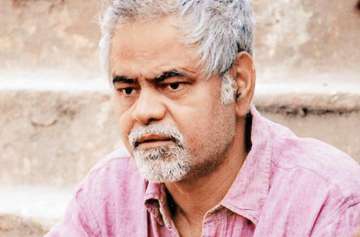I have a big problem with labelling actors, says Golmaal actor Sanjay Mishra
By accident, as Sanjay Mishra calls it, he got film offers which gave him the opportunity to show his versatility.
Actor Sanjay Mishra, who has delivered many powerful performances, feels it would have been tragic had he been reduced to one genre.
The veteran actor is known for his wonderful comic timing through films like "Phas Gaya Re Obama", "Golmaal" series, "All The Best" and "Dhamaal".
While the roles were good and the audience feedback satisfying, the fear of being "labelled" had set in for Mishra.
In an interview with PTI, the actor says, "My best phase started with 'Phas Gaye Re Obama' in 2010, otherwise I would have been reduced to just a comedian. It would've been very sad if I did only comedy.
"Here, we give tags to everyone -- he is a comedian, he is a hero, he is a character actor. Why? Everyone is an actor. I have a big problem with the tags."
By accident, as Mishra calls it, he got film offers which gave him the opportunity to show his versatility.
Mishra was doing "Phas Gaye Re Obama" with Rajat Kapoor as his co-star and while working together, Kapoor told Mishra that he is writing a script with him in mind. He later cast the actor as protagonist Raje Bauji in his critically-acclaimed directorial "Ankhon Dekhi" (2013).
Mishra says he used to laugh it off whenever filmmakers would say they have written a character keeping him in mind.
When Kapoor narrated "Ankhon Dekhi", Mishra initially found the plot of the film complex.
"When I get something out of the box, I'm like 'No, I don't want to do it.' So, I just vanished. Then Rajat gave the script to Naseeruddin Shah as I was not giving any response. When he told me Naseer bhai liked it, I thought it's great if he does the film," he says.
"But then Rajat texted me a few days later and said 'When Naseer bhai heard you were doing the film earlier, he said this will be a milestone for him. If you give this role to Pankaj Kapur, Paresh Rawal, Om Puri or someone else, then never talk to me'," he adds.
Mishra was back on the project. There was pressure, as he admits, to lead the film, but the actor followed his instincts and went on to win his first award -- Filmfare Award for Best Actor (Critics).
"I didn't read the script at all. I relied completely on Rajat's vision and followed that," Mishra says.
The vision and the blind faith would become quite literal for him three years later with "Kadvi Hawa".
The Nila Madhab Panda-directed environmental drama which chronicled the story of a blind old man and a young bank loan recovery agent who fight for their survival in the backdrop of climate change and drought.
Panda had spoken to Mishra about doing a film but nothing materialised for a long time. The day when Panda called him to explain the role, Mishra was on his toes.
"Characters where one is required to be blind, alcoholic, are always tricky... There are high chances it can end up being gimmicky," the actor says.
The director suggested Mishra watch some films to get into the skin of the character but the actor never wanted to do that as he thought it would end up looking like an imitation.
Mishra, in his own way, tried to understand what darkness meant in the life of a blind man. He invited a visually-challenged man at his office to find out the importance of sound in day-to-day activities.
"In 'Aakhon Dekhi', the man refuses to believe anything which he can't see. Just opposite to it, there's a blind man in 'Kadvi Hawa' who says, I can see it. Why can't you?
"All my films on one side and 'Kadvi Hawa' on one. We are neglecting the climate change and don't realise that the future is scary. If even one person plants a tree after watching the film, my job will be done," he says.
Mishra now awaits the release of his "most personal" film yet, "Kaamyaab".
Directed by National Award-winning filmmaker Hardik Mehta, the movie is about a seasoned character, whom the actor describes: "Harr qissey ka hissa hai woh" (he is a part of every story).
"It's a personal character. Every character actor who plays a father, a cop or a villain in films, this is their story. It's a hard-hitting subject and shows that side of the film industry which many people have to face," he says.
(With PTI Inputs)
